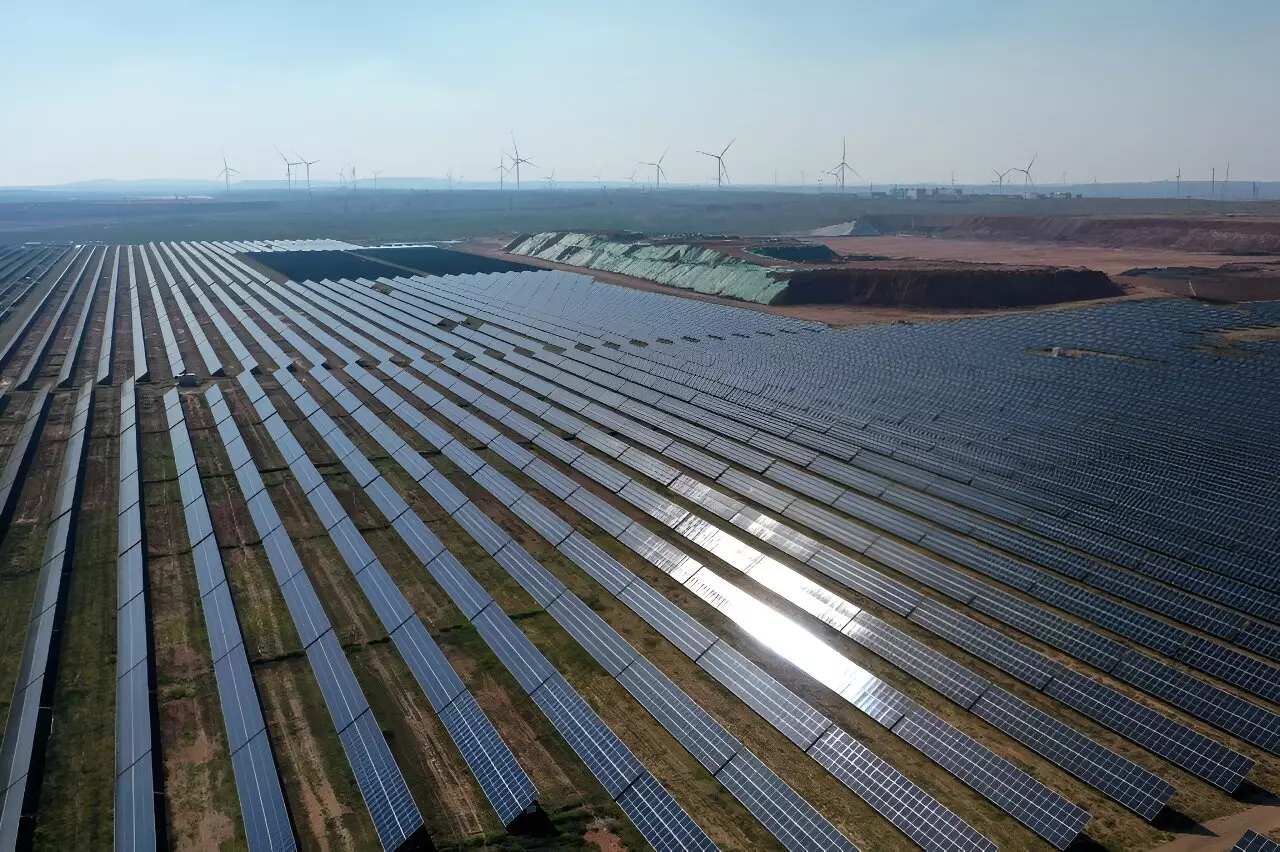Recent research highlights a significant evolution in China’s energy landscape, revealing that 25% of its total energy consumption now derives from clean sources. This development signals Beijing’s ambitious transition towards a more sustainable and environmentally friendly economy. As the world’s leading emitter of greenhouse gases, China has increasingly positioned itself as a frontrunner in global renewable energy, with aspirations to peak its carbon emissions by 2030 and achieve net-zero targets by 2060.
The goal of transitioning to greener energy sources reflects both domestic policy and international pressures. Beijing’s commitment to renewable energy is underscored by a notable increase in the clean energy share in its national energy consumption, which surged from 15.5% to an impressive 26.4% over the past decade. The substantial investment and expansion in wind and solar capacities demonstrate the government’s dedication to fostering a sustainable energy economy, with capabilities multiplying tenfold in the same timeframe.
Leading the Charge in Renewables
According to a recent white paper, China has significantly contributed to global renewable energy growth, accounting for more than 40% of annual additions to worldwide renewable capacity since 2013. This statistic not only cements China’s role as a crucial player in the renewable sector but also highlights the historical breakthroughs the nation has achieved in green energy development, as acknowledged in the documents released by state media.
Despite these accomplishments, the challenge remains in reconciling growth with the complexities of energy management and distribution. The rapid expansion of renewable sources often leads to mismatched development, causing considerable amounts of energy waste. Furthermore, the volatility within China’s solar industry has cast shadows on the sustainability of certain firms, highlighting the need for a more robust infrastructure to support this burgeoning green segment.
International Obligations and Domestic Realities
China’s standing in the renewable energy sector aligns with global climate commitments outlined in the Paris climate accord, which encourages nations to reduce greenhouse gas emissions to combat rising global temperatures. While China’s trajectory has garnered international commendation, it has also prompted calls for more aggressive action in tackling climate change. The discourse surrounding Beijing’s environmental policies often raises questions about the balance between economic growth and ecological responsibility.
The recent achievement of exceeding renewable energy targets set by President Xi Jinping—completed nearly six years ahead of the deadline—raises optimism about the country’s capacity for future green initiatives. However, as China navigates this transition, the mixed performance in renewable energy production and the financial distress of some firms signal potential obstacles that must be addressed for sustainable growth.
China’s advancements in renewable energy mark an essential step towards a greener future, yet the journey is fraught with challenges. As the nation continues to expand its clean energy portfolio, it is crucial to tackle inefficiencies and ensure the financial viability of the industry. By harmonizing growth with strategic planning and innovation, China can solidify its status as a leader in renewable energy while contributing to global climate goals and fostering a sustainable economy. The ongoing transition will not only shape the future of energy consumption within China but also set a critical precedent for other nations aiming for similar environmental objectives.


Leave a Reply